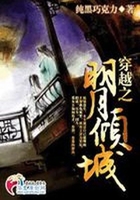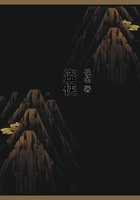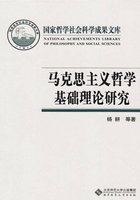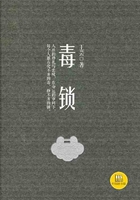Among the Samurai of Choshu, and in particular among the councillors of the Daimio, his general culture, his views, which the enlightened were eager to accept, and, above all, the prophetic charm, the radiant persuasion of the man, had gained him many and sincere disciples. He had thus a strong influence at the provincial Court; and so he obtained leave to quit the district, and, by way of a pretext, a privilege to follow his profession in Yeddo. Thither he hurried, and arrived in time to be too late: Perry had weighed anchor, and his sails had vanished from the waters of Japan. But Yoshida, having put his hand to the plough, was not the man to go back; he had entered upon this business, and, please God, he would carry it through; and so he gave up his professional career and remained in Yeddo to be at hand against the next opportunity. By this behaviour he put himself into an attitude towards his superior, the Daimio of Choshu, which I cannot thoroughly explain. Certainly, he became a RONYIN, a broken man, a feudal outlaw; certainly he was liable to be arrested if he set foot upon his native province; yet I am cautioned that "he did not really break his allegiance," but only so far separated himself as that the prince could no longer be held accountable for his late vassal's conduct. There is some nicety of feudal custom here that escapes my comprehension.
In Yeddo, with this nondescript political status, and cut off from any means of livelihood, he was joyfully supported by those who sympathised with his design. One was Sakuma-Shozan, hereditary retainer of one of the Shogun's councillors, and from him he got more than money or than money's worth. A steady, respectable man, with an eye to the world's opinion, Sakuma was one of those who, if they cannot do great deeds in their own person, have yet an ardour of admiration for those who can, that recommends them to the gratitude of history. They aid and abet greatness more, perhaps, than we imagine. One thinks of them in connection with Nicodemus, who visited our Lord by night. And Sakuma was in a position to help Yoshida more practically than by simple countenance; for he could read Dutch, and was eager to communicate what he knew.
While the young Ronyin thus lay studying in Yeddo, news came of a Russian ship at Nangasaki. No time was to be lost.
Sakuma contributed "a long copy of encouraging verses and off set Yoshida on foot for Nangasaki. His way lay through his own province of Choshu; but, as the highroad to the south lay apart from the capital, he was able to avoid arrest. He supported himself, like a TROUVERE, by his proficiency in verse. He carried his works along with him, to serve as an introduction. When he reached a town he would inquire for the house of any one celebrated for swordsmanship, or poetry, or some of the other acknowledged forms of culture; and there, on giving a taste of his skill, he would be received and entertained, and leave behind him, when he went away, a compliment in verse. Thus he travelled through the Middle Ages on his voyage of discovery into the nineteenth century.
When he reached Nangasaki he was once more too late. The Russians were gone. But he made a profit on his journey in spite of fate, and stayed awhile to pick up scraps of knowledge from the Dutch interpreters - a low class of men, but one that had opportunities; and then, still full of purpose, returned to Yeddo on foot, as he had come.
It was not only his youth and courage that supported him under these successive disappointments, but the continual affluence of new disciples. The man had the tenacity of a Bruce or a Columbus, with a pliability that was all his own.
He did not fight for what the world would call success; but for "the wages of going on." Check him off in a dozen directions, he would find another outlet and break forth. He missed one vessel after another, and the main work still halted; but so long as he had a single Japanese to enlighten and prepare for the better future, he could still feel that he was working for Japan. Now, he had scarce returned from Nangasaki, when he was sought out by a new inquirer, the most promising of all. This was a common soldier, of the Hemming class, a dyer by birth, who had heard vaguely (1) of Yoshida's movements, and had become filled with wonder as to their design. This was a far different inquirer from Sakuma-Shozan, or the councillors of the Daimio of Choshu. This was no two-sworded gentleman, but the common stuff of the country, born in low traditions and unimproved by books; and yet that influence, that radiant persuasion that never failed Yoshida in any circumstance of his short life, enchanted, enthralled, and converted the common soldier, as it had done already with the elegant and learned. The man instantly burned up into a true enthusiasm; his mind had been only waiting for a teacher; he grasped in a moment the profit of these new ideas; he, too, would go to foreign, outlandish parts, and bring back the knowledge that was to strengthen and renew Japan; and in the meantime, that he might be the better prepared, Yoshida set himself to teach, and he to learn, the Chinese literature. It is an episode most honourable to Yoshida, and yet more honourable still to the soldier, and to the capacity and virtue of the common people of Japan.
(1) Yoshida, when on his way to Nangasaki, met the soldier and talked with him by the roadside; they then parted, but the soldier was so much struck by the words he heard, that on Yoshida's return he sought him out and declared his intention of devoting his life to the good cause. I venture, in the absence of the writer, to insert this correction, having been present when the story was told by Mr. Masaki. - F. J. And I, there being none to settle the difference, must reproduce both versions. - R. L. S.
And now, at length, Commodore Perry returned to Simoda.















